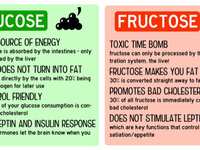- Categories :
- More
Mindful Eating Hacks for 2025

by Mila McManus, MD
Learning to be mindful about your eating habits can be transforming. Over the next two weeks, we will introduce you to twelve science-backed hacks to help you be more mindful and create new eating habits. Because we eat a few, to several, times daily, our eating habits are deeply entrenched, and we often don’t think much about them. Most of the following hacks are easy to implement AND don’t cost anything, AND they will help you change how you think about your eating patterns. Implement them one by one or put them together for greater impact on your health!
ONE: Eat until you are 80% full. This concept originates from Okinawa and is called “Hara Hachi Bu” in Japanese. It matters because there is a delay between your stomach being full and the leptin hormone communicating that to your brain. Be mindful that ultra-processed foods often contain ingredients designed to trick your brain so that it does not hear the fullness message from leptin, contributing to overeating, craving more, and metabolic dysfunction, including weight gain, diabetes, and/or dementia. One aspect of mindfulness is learning to listen to your body and stop eating when you can still comfortably do some yoga or go for a stroll.
TWO: Sit down to eat and eat slowly. Digestion is accomplished through the parasympathetic nervous system, along with healing, recovery, and rest. If you are stressed while eating, you do so in your “fight or flight” state through the sympathetic nervous system. Science demonstrates that our gut permeability is increased during this stressed state, and our production and release of digestive enzymes are decreased, making for poor digestion. Thoughtlessly eating on the go can increase the likelihood of leaky gut and digestive discomfort. Mindful eating is eating more slowly and chewing your food longer. It helps decrease overeating as you are more likely to “hear” or experience the fullness message given by your leptin hormone.
THREE: Plan meals and snacks to avoid reaching the point of “hangry”. Failure to plan is a plan to fail. Once you hit the hangry (hungry and angry) place, odds are that your choices will also suffer. Maintaining steady blood sugar levels and avoiding severe spikes and drops is a fundamental habit hack to avoid most diseases. Being mindful of the need to plan, organize, and shop for your week will help you succeed. Carry a cooler if necessary and plan balanced snacks such as mixed nuts, olives, apples, or celery with nut butter, fresh veggies, hummus or guacamole, grass-fed beef sticks, and/or a balanced, clean ingredient food bar such as the Aloha brand.
FOUR: Make sleep a priority. Poor sleep is directly correlated to poor eating habits. Skimping on sleep alters and disrupts your appetite hormones. It stimulates ghrelin to communicate hunger messages and reduces leptin messages of fullness. And, of course, when you are tired, you have less emotional bandwidth to make better food choices in the first place. Sleep is also when your body detoxifies, resets hormones, and recovers from stress. Focusing your mind and thinking on prioritizing sleep is one of the most important habit hacks you can do for yourself.
FIVE: After eating, get moving. Muscles love glucose (i.e. sugar). This habit hack is one of the best ways to maintain stable blood sugar: get moving within 30 minutes of eating. Mindfully plan to walk, do some gardening, wash the car, or go for a family bike ride after meals. Enjoyable activity after eating reduces stress, promotes the body’s utilization of the food eaten, improves relationships, and helps with digestion and quality sleep.
SIX: Track your eating frequency. For a week or two, keep a journal of each snack and meal, including the time of day and how you felt emotionally or what you were doing before you went to get a snack. Being mindful in this way helps you to identify emotional and distracted eating, and/or eating out of boredom. Scrolling the phone or watching TV while eating is not mindful and can lead to far more calorie consumption than your body can utilize. You may want to move all eating to the kitchen table rather than the couch, desk, or bed. This goes hand in hand with eating slowly until 80% full and will prevent you from mindlessly finishing off a bag of crackers or chips. It will help you see what emotions or events make you go to food to soothe you. Then, you can find healthier ways to relax and soothe your emotions or relieve your boredom rather than doing so with food. Here’s a link to a simple practice to reduce anxiety without using food.
Stay tuned next week for the other six mindful eating hacks for 2025. In the meantime, start hacking and be well.
Reference
https://drhyman.com/pages/eating-guide-101
















